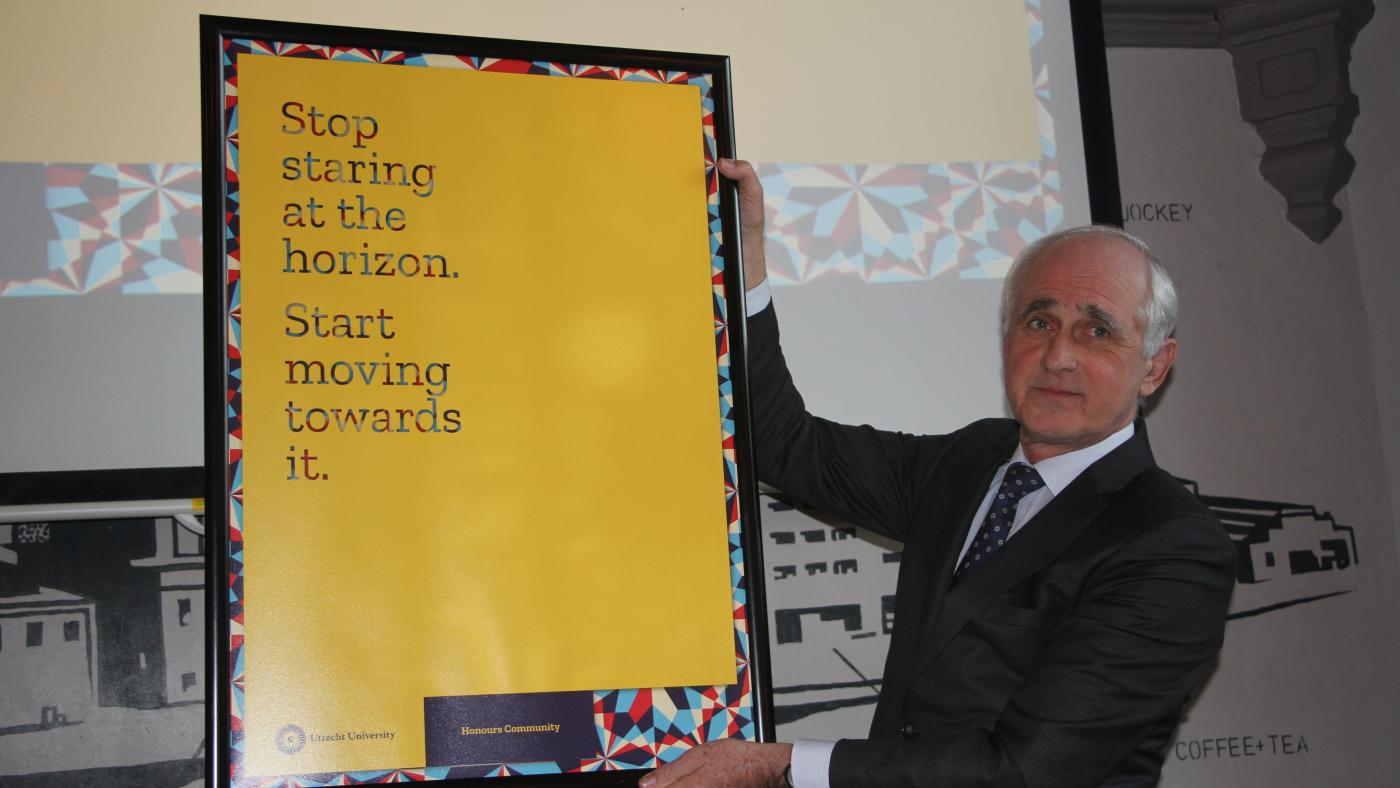Austerity proposal
Honours programmes for Bachelor's students might disappear at UU

The news was announced last Monday in the meeting between the University Council and the Executive Board. The council was astonished by the news, which surprised UU Vice-President Margot van der Starre considering the idea had been supported almost unanimously by the vice deans.
Every Bachelor's degree has an honours programme at UU. First-year students who get good grades or distinguish themselves in other ways can register for such a programme, while some students are asked to follow it. According to UU's website, an honours programme "pushes academic boundaries and celebrates curiosity".
The honours programme lasts two years and is followed in addition to the regular programme. Some honours programmes offer a deeper dive into the field, while others are faculty-wide and therefore interdisciplinary. Honours programmes demand students to take more initiative, which results in personal development. Those who complete the programme receive a certificate alongside the diploma.
UU also maintains honours programmes at the Master's level as well as university-wide honours programmes such as Descartes and honours colleges such as University College Utrecht. These will not be terminated.
Austerity measures
The elimination of honours programmes at the Bachelor's level will help reduce the university's expenses, although it is not yet clear how much UU would save by doing that. Next year, the university will have to spend 35.1 million euros less than this year. In the worst-case scenario, the cutbacks will increase to 77 million euros by 2029, the equivalent of 10 percent of what UU currently receives from the Dutch government.
The Executive Board believes that honours programmes will become redundant once it renews its education model. The new education model will be included in the strategic plan for 2025-2030, which envisages more interdisciplinary education and community-engaged learning for all students. This means that students will be encouraged to think of solutions to social issues. The university assumes that this type of education should stimulate students' personal development as much as honours programmes do. After all, the new education model is based on the experiences gained in honours education.
Current honours students react
Koko Byalkov, a student member of the University Council who started an honours programme this year, asked Van der Starre if current students could still complete their honours. The UU vice president said it would be weird not to let them do it, but this decision is up to the rector, who was absent from the meeting because he was abroad.
The last word on this matter has not yet been said. First, the vice deans must come up with a formal recommendation for the Executive Board. If the board supports the recommendation, the next step is submitting it to the University Council. After all, the Education Directive must be amended for the cancellation of honours programmes, on which the council has the right of approval.